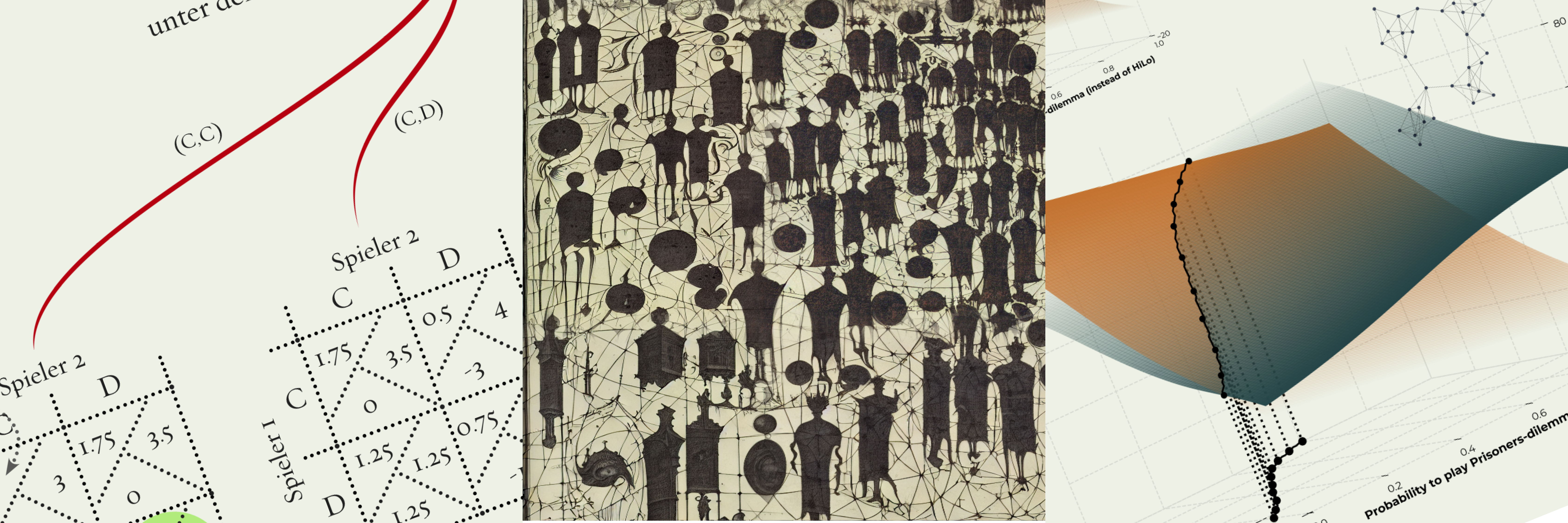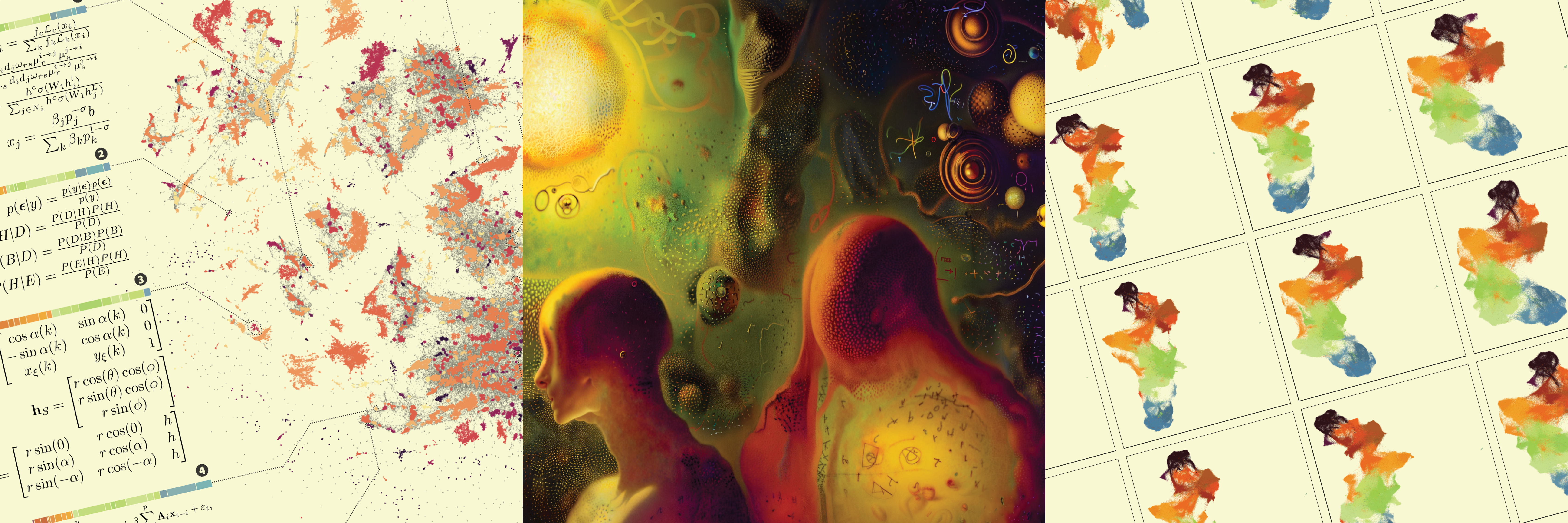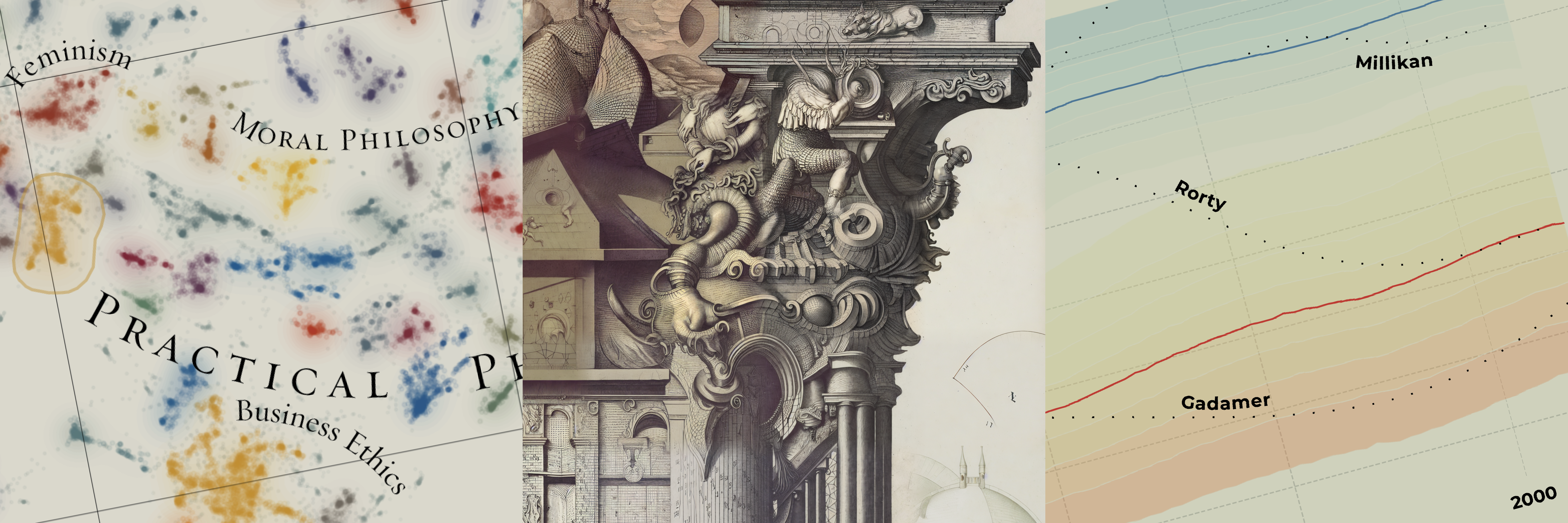Below are some details about the projects I am currently working on.
You can also have a look at my CV here.
Simulating collective actors

In this project, together with Leyla Ade, Johannes Marx and Olivier Roy, we are investigating how collective actors can arise and persist, without leaning on structures provided by hierarchy or protocol – so-called horizontal collective actors. To achieve this, we are making use of Bacharachs theory of team-reasoning, an extension of classical game theory, that tries to explain cooperative behavior of agents without resorting to limiting the agent’s rationality. Methodologically, my work in this project focuses on agent based simulations, in which agents can learn about their social environments, and adapt their behavior in a way that might give rise to group actors that function reliably over extended periods. You can learn more about the project, and the other DFG projects surrounding it, on the website of the Research Unit on the Emergence of Collective Agency, which I administrate.
Below are some talks I have given about this project. Until now, most of them have focused on the technical choices in our implementation, but we are now beginning to apply our models to more concrete situations, like scientific communities.
- Maximilian Noichl (2022). Scientific collaboration as unreliable team interaction Helsinki, Institutional Epistemology
- Maximilian Noichl (2022). Team reasoning in complex social settings (with Johannes Marx) Oldenburg, Arbeitskreis für Handlungs- und Entscheidungstheorie (AkHet)
- Maximilian Noichl (2022). Simple Teams: A Framework for Simulating Team Reasoning Bamberg, Workshop on Team Reasoning and Collective Agency (own Organization)
- Maximilian Noichl (2021). How to model autonomous collective agents: a primer (with Leyla Ade) Bamberg, Anniversary Conference of the Bamberg Graduate School of Social Sciences
Model-Template-Transfer

In this project at the University of Vienna, together with Tarja Knuuttila and Andrea Loettgers we are trying to bring a computational approach to the philosophical discussions of interdisciplinarity – and in particular to the discussions of model-transfer. Starting from the observation, that the same models often show up in very different material domains, we are trying to build a method that allows us to trace these developments in large corpora of science. As a spin-off from this project, we are also doing some work on the epistemology of unsupervised machine-learning, in particular dimensionality reduction, as this central to our methodology. Here’s the first paper coming out of the project:
Maximilian Noichl (2023). How localized are computational templates? A machine learning approach. Synthese 201, 107 https://doi-org.uaccess.univie.ac.at/10.1007/s11229-023-04057-x
There are also several talks & working papers:
- Maximilian Noichl (2022). Specious Art by Alien Wizards – The Emergence of Epistemic Norms Surrounding Dimensionality Reduction Tübingen, PhilML 2022, Graduate Workshop
- Maximilian Noichl (2021). The epistemic vices and virtues of dimensionality-reduction Zurich, History and Philosphy of Computation, hapoc
- Maximilian Noichl (2021). A computational approach to the philosophical discussion of model transfer (with Andrea Loettgers) Torino, Conference of the European Philosophy of Science Association, EPSA
- Maximilian Noichl (2021). A computational analysis of interdisciplinary model template transfer (with Andrea Loettgers) Louvain, Digital Studies of Digital Science, DS^2
- Maximilian Noichl (2021). Tracing model templates through computational methods Vienna – Virginia, Workshop: Transdisciplinary Model Transfer and its Interfaces
Computational Intellectual History

In this project I am trying to adapt and develop computational methodologies for the investigation of questions of intellectual history and history of science. As the amount of scholarly output has vastly increased since the early 20th century, I think it is unsatisfying to rely only on case-studies of noteworthy episodes to gather insight into their development. My research in this field makes use of fine-tuned language-models to tease out shifts and structures in large corpora of scholarly material. A particular challenge I have been focusing on recently is how to apply machine learning methods to multilingual corpora. One article, in which I try to find a computational model for the divide between analytical and Continental philosophy, has been published in Synthese:
- Maximilian Noichl (2021). Modeling the structure of recent philosophy. Synthese 198, 5089–5100. https://doi.org/10.1007/s11229-019-02390-8
I have also given some talks about this project, which has been slowly evolving since at least 2017:
Maximilian Noichl (2022). Modeling Multlingual Philosophies (invited) Berlin, Kolloquium: Phänomenologie der Digital Humanities
Maximilian Noichl (2021). Quantifying the Analytic/Continental Divide Vienna, SSHAP: Annual Conference of the Society for the Study of the History of Analytical Philosophy
Maximilian Noichl (2020). Topological Machine-Learning for Intellectual History Bochum, Philosophical Colloquium
Maximilian Noichl (2020). Poster: Modeling disciplinary structure with uniform manifold approximation and projection. Paderborn, DHd2020 ‘Spielräume’
Maximilian Noichl (2018). The analytic-continental divide is small but stable. Munich, Conference for Computational Modeling in Philosophy (CMP)